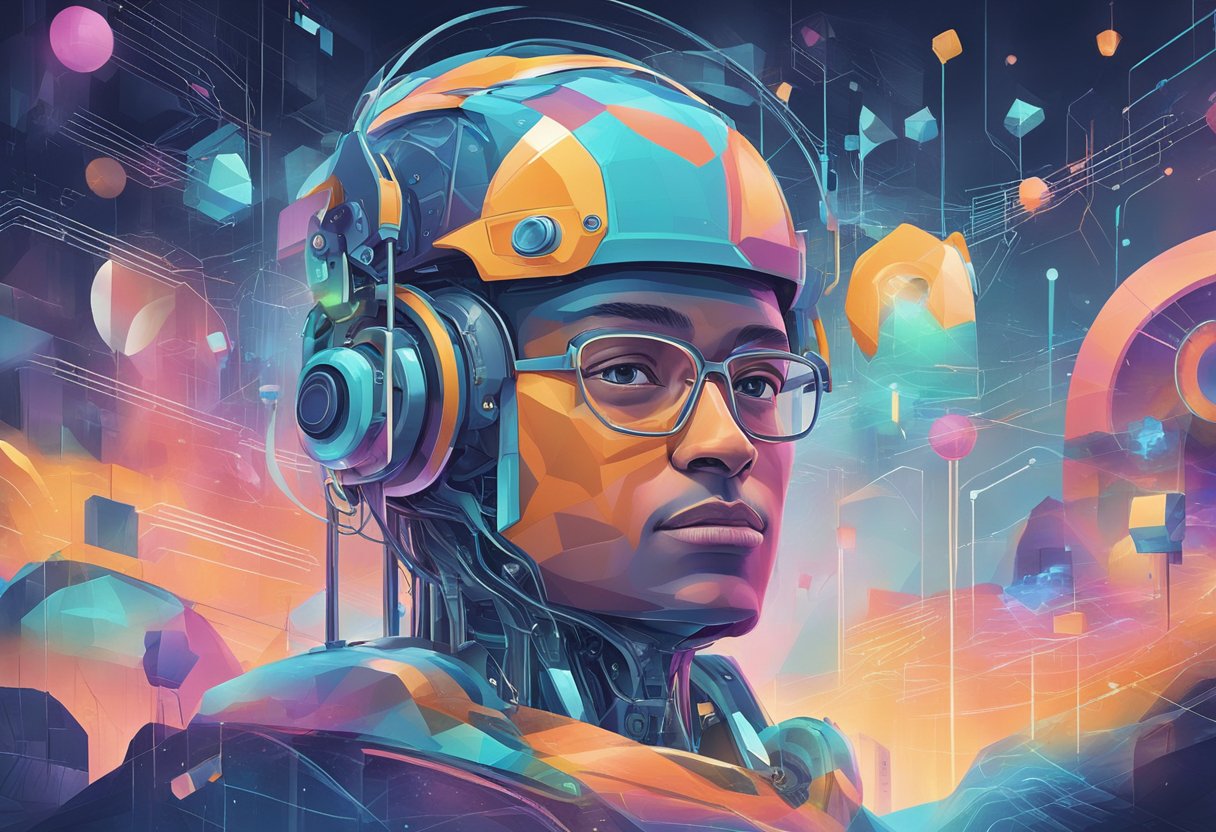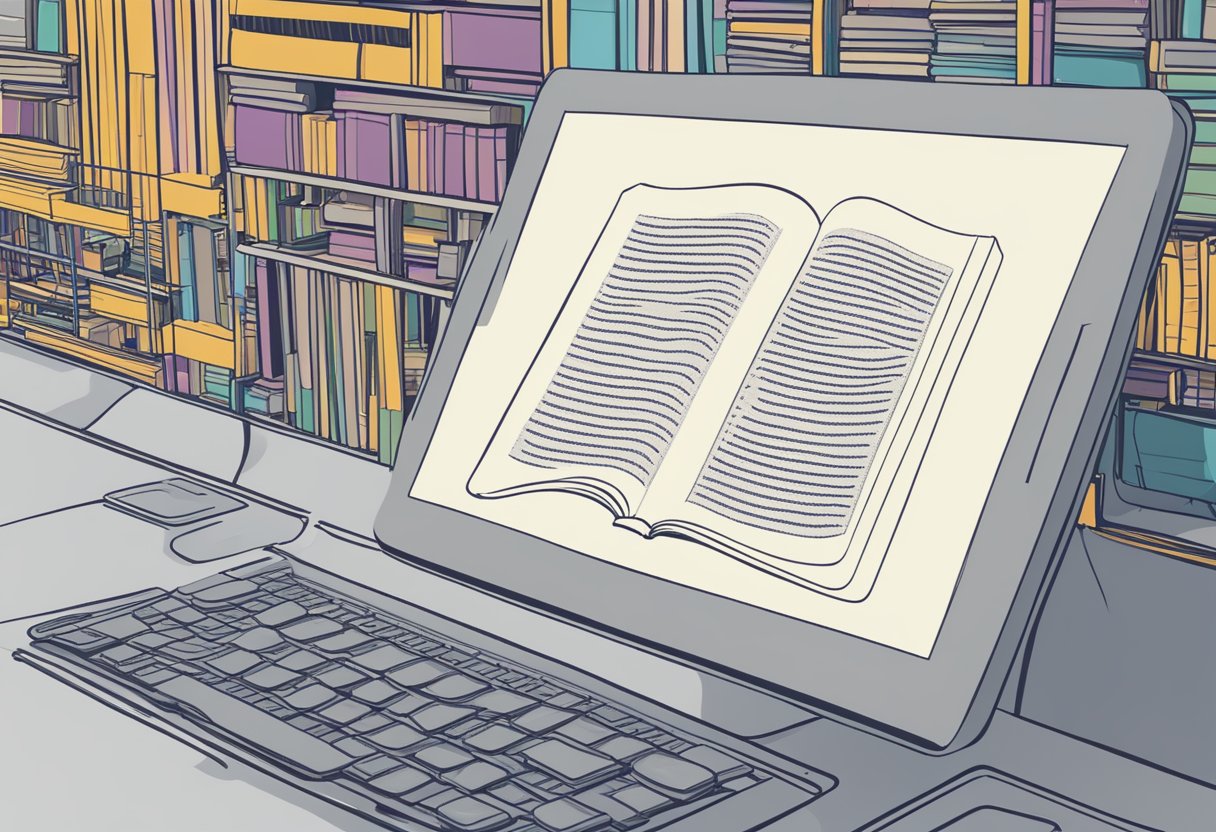As an author in the digital age, you may be captivated by the potential that AI, particularly ChatGPT, has in the realm of writing. The thought of using such advanced technology to craft your next book is exciting and raises an important question: Is it legal to use ChatGPT to draft a manuscript?
Rest assured, as of now, utilizing OpenAI’s ChatGPT for writing a book is perfectly legal. The platform grants you the freedom to harness the AI’s capabilities for your creative endeavors, including commercial use.
However, while the legal arena doesn’t hinder you from employing ChatGPT in the creative process, it’s your responsibility to navigate the intricacies involved. Since ChatGPT has the ability to generate content based on extensive data input, your use of AI-generated text must be approached with a nuanced understanding of originality and copyright considerations.
It’s essential for you to ensure that your book, although supported by AI, maintains a uniqueness that distinguishes it from others—a true expression of your authorial voice underpinned by technology.
Lastly, remember that the literary journey is as much about innovation as it is about writing. Integrating ChatGPT into your workflow doesn’t just open doors to streamlining the writing process; it also offers you a companion in refining, editing, and perhaps even overcoming writer’s block.
Your role as an author evolves as you direct and mold the AI-generated content into something that’s truly yours, ready to share with the eager readers of your upcoming book.
Legal Considerations of Using AI to Write a Book

When you venture into the territory of using AI, such as ChatGPT, to write a book, it’s important to navigate the landscape of copyright law and intellectual property rights. Legal implications could arise that affect the way you approach authorship and monetization of your content.
Copyright and AI-Generated Content
Copyright is a legal term used to describe the rights that creators have over their original works. Typically, copyright law protects your literary and artistic works from unauthorized reproduction. However, the water gets muddier with AI-generated content. The main question is whether AI creation is eligible for copyright, and if so, who holds it—especially since AI, like ChatGPT, often relies on a vast database of existing knowledge to generate content.
For instance, if you use ChatGPT to generate text for your book, you should be aware that while OpenAI allows users to utilize ChatGPT outputs, these outputs may not be entirely unique, potentially leading to similar content appearing elsewhere. Regulation hasn’t fully caught up with technology in this regard, meaning the landscape is still being shaped.
You may also like 📖
- Ultimate Guide: using ChatGPT to Plan your next Trip
- Unleashing the power of ChatGPT to master Chess
- How to use ChatGPT to reply to emails in your 9-5 job like a pro
- Writing the Perfect Cold Email with ChatGPT: A Modern Spin on the AIDA Model
- How to use ChatGPT to get unique Gift Ideas for friends
- How to use ChatGPT to Plan the Perfect Kids Birthday Party
- How to use ChatGPT to create custom Meal Plans that work
- How ChatGPT can help you Memorize Anything quickly
- How ChatGPT can help you Write your Fiction novel 10x faster
- How to use ChatGPT to Summarize Books
Authorship and Ownership Rights
Establishing authorship is key when using an AI tool like ChatGPT. Classic ownership rights might not automatically transfer to you as the user of an AI. It’s essential to document your creative process—outlining how you used the software and contributed to the generated content. You want to clarify your intellectual property rights in the content you’ve created with AI assistance.
Furthermore, the issue of who holds the copyright ownership when AI is involved isn’t just about who clicked the ‘generate’ button. The legal community is actively discussing whether the creators of AI should also be considered co-authors or retain some form of rights. In practice, you should also be cautious of including any content that the AI blends from existing copyrighted material to avoid legal implications. As advised by Forbes, consider discussing with legal counsel to ensure your use of AI aligns with your intellectual property goals.
The Role of AI in the Creative Process

As you explore the idea of using AI to write a book, it’s critical to understand how artificial intelligence can be both a tool and a partner in the creative process. From the spark of originality to the final product, AI’s role is multifaceted.
AI Writing Tools and Human Creativity
AI writing tools have the potential to augment your creativity. By providing suggestions for plot developments and character dialogue, these tools can act as a digital muse, sparking new ideas that you might not have considered. They serve as a creative sounding board; you’re still the driver of innovation but with an AI copilot offering real-time feedback and ideas. These generative AI systems are designed not to replace your role as a writer but to enhance human creativity, ensuring that your voice and originality remain at the core of your work.
The Intersection of Technology and Artistry
The collaboration between technology and artistry is a tale as old as time, now witnessing a new chapter with AI integration. As a writer, you might find that AI-generated content raises questions about human authorship and originality. However, when used responsively, AI can be a powerful tool that respects and uplifts your artistic intent. It’s about embracing innovation within the creative process without losing the essence of human touch that makes your work resonate.
Remember, technology, when wielded with care and purpose, is simply an extension of human creative process. Your originality as an author remains untarnished and central to the art you create with AI.
Practical Aspects of AI-Assisted Writing

Utilizing AI to assist in book writing is a blend of technology and creativity. Here, you’ll explore how tools like ChatGPT can streamline the writing process and help in polishing original content.
Editing and Enhancing Original Content
When you’re writing a book, maintaining your unique voice and style is paramount. AI writing tools can help you keep your writing styles consistent while suggesting improvements. Let’s break it down:
- Editing for Clarity: AI can assist by pointing out complex sentences and suggesting simpler alternatives.
- Grammar and Accuracy: Tools like Grammarly can work alongside ChatGPT to ensure your work is grammatically correct, free from typos, and reads well.
- Original Content: AI can suggest edits, but it’s your original content that will shine. AI items offer suggestions, but you make the final call on your narrative voice.
Streamlining the Writing Process with ChatGPT
ChatGPT can be your assistant through the more structural parts of writing:
- Brainstorming Ideas: Use AI to bounce ideas around and develop your plot or arguments.
- Research Aid: ChatGPT can pull relevant information and data, although you should verify the accuracy for your book’s integrity.
- Drafting Faster: With AI, you can create a rough draft quickly, which you can refine and mold into your final manuscript.
Remember: Your creative input is the key. ChatGPT is just a tool to assist, enhance, and expedite your writing process.
Publishing and Marketing AI-Generated Books

When you decide to publish and market a book written with the help of AI, it’s crucial to understand the legal landscape and effective marketing techniques. Let’s dive into the specifics about copyright considerations and marketing strategies tailored for AI-generated literary works.
Navigating Copyright in Self-Publishing
When venturing into self-publishing your AI-generated book, you must be mindful of copyright laws. As of the time of your writing, self-publishers are required to declare AI-generated content on platforms such as Amazon. This step is crucial to ensure transparency with your readers and compliance with platform guidelines. Outline a clear disclosure of AI’s role in creating your book to avoid potential legal pitfalls and ensure your readers know what they are getting.
You may also like 📖
- AI for Artists: How to Use ChatGPT to Write Songs and Monetize Your Music
- Earn with ChatGPT-Generated Fiction on Kindle Direct Publishing
- ChatGPT: Your Secret Weapon for Winning Writing Contests and Landing Lucrative Prizes
- ChatGPT for Real Estate: How to Write Property Descriptions that Sell and Make Big Bucks
- How to Use ChatGPT to Start a Profitable Review Blog
- Navigating Market Saturation: A Guide for Aspiring Online Entrepreneurs
Marketing Strategies for AI-Generated Literary Works
Marketing your AI-written book can be a unique challenge, but also an opportunity to showcase the innovative AI technology behind it. Your marketing strategies should focus on the concept that makes your book unique. Use social media to display excerpts and garner feedback. Remember, the novelty of AI can be a selling point, so emphasize the AI’s contribution to your literary works. Incorporating testimonials or preview reviews can help create a buzz and draw the interest of potential readers who are curious about the capabilities of AI in literature.



